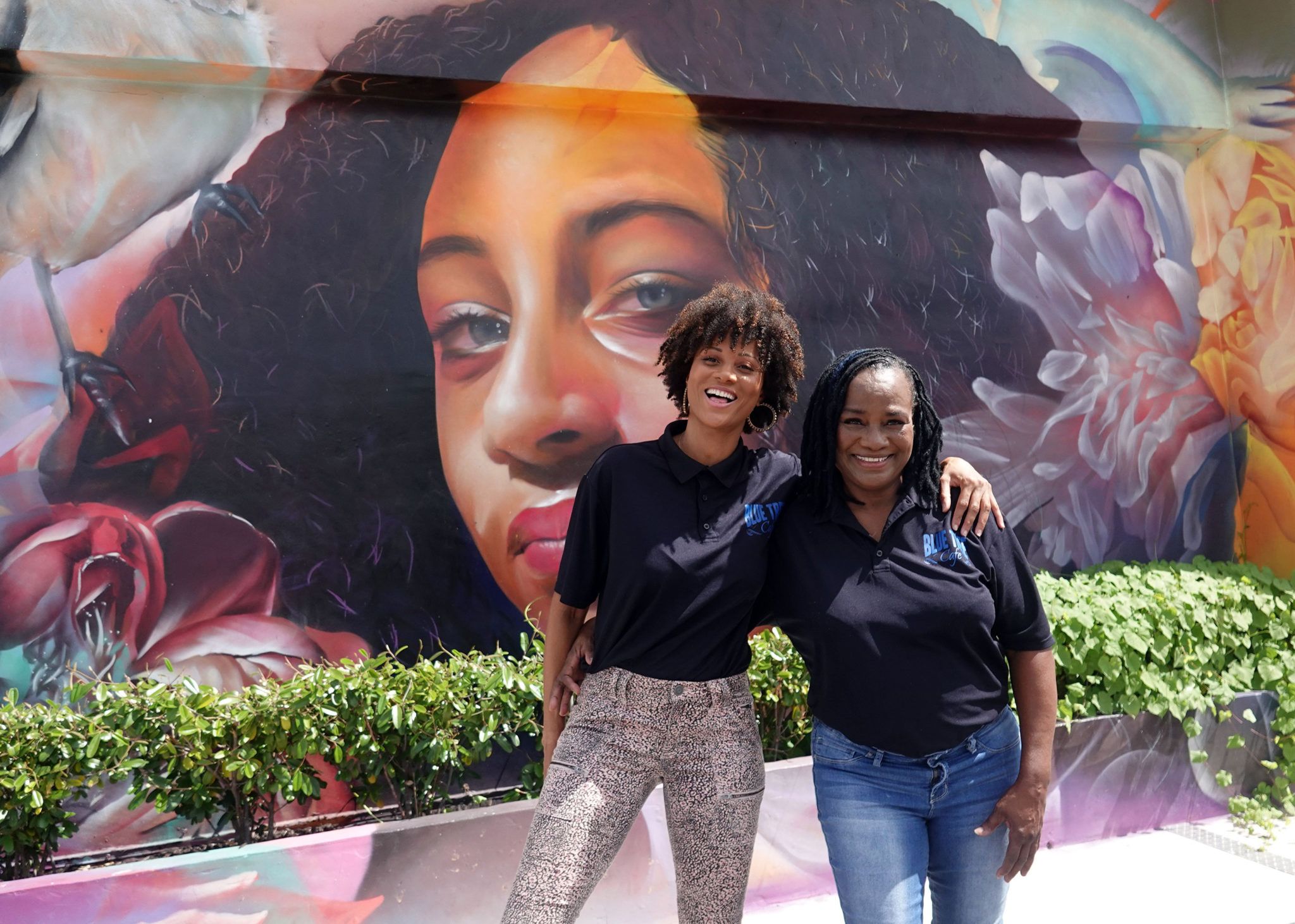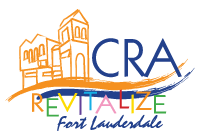
22 Sep ‘Euphoria’ Star Nika King And Her Chef Mom Opening Incubator Kitchen In Fort Lauderdale
When Blue Tree Café opens in Fort Lauderdale, expected to happen in September or October as a takeout/delivery-only restaurant, the two want to also use their expansive new kitchen as a launching pad for other small food and beverage purveyors.
Family as well as business partners, King and chef Sharon Allen say they know the difficulty of developing a food business from the ground up. They initially planned to open a brick-and-mortar restaurant in February 2020, but then the pandemic shut down everything. A timely grant from United Way of Broward County (the Microbusiness Recovery Program) and the pair’s shift to a “cloud kitchen” saved the day. And now mother and daughter want to pay it forward.
“We’ve been through so much over the past few years working on this restaurant,” King tells the South Florida Sun Sentinel. “And it would be a huge blessing for people to come in and say, ‘Wow, they did the work. They literally walked so we could run.’ Giving them that leg up because honestly, with any business, with any startups, you need that additional help. And we know what it’s like and our goal is to be where people can find that. That’s my heart goal.”
Chef Allen, who lives in Miramar, adds, “That’s mine as well. You don’t have to reinvent the wheel. It’s been years and years of stumbles and a lot of money. But like Nika says, you get in there and you find out [what doesn’t work] so you can go back to the drawing board … It’s going to be kind of like I helped me, because they’re going to go out there from under the Blue Tree. It’s almost like a talent scout.”
They are hoping to take on three to five emerging businesses for a six- to eight-week program in their “virtual restaurant” or “ghost kitchen” — hot buzzwords in the food industry — and help the participants take advantage of programming available through organizations such as the Fort Lauderdale Community Redevelopment Agency, Urban League of Broward County and United Way.
“The Blue Tree Café’s business model is remarkable,” says Danielle Doss, of the United Way of Broward County. “Sharon has taken into consideration, on one hand, the lack of access to healthy food options in the Sistrunk community and, on the other, capitalized on the convenience and leveraged the popularity of delivery and curbside services.”
Up-and-coming chefs or entrepreneurs interested in their incubator kitchen program, should either email BlueTreeCafe@gmail.com or visit BlueTreeCafe.com for more information.
“We don’t want people to just go through the program and then we just push them out and say, ‘OK, you did your six to eight weeks. Figure it out,’ ” says King, who travels between Fort Lauderdale and Los Angeles, where “Euphoria” is filmed. “We want to tap back into those resources with the CRA, with United Way, with redevelopment agencies and give people the help that they really need … So we want to give people really the space to figure things out. To fail. To re-engage.”
King was born and raised in Miami with five siblings, attending Miami Carol City Senior High School (where she later returned for a stint as a drama/dance teacher) before graduating from the University of Florida with a theater degree. After moving to Los Angeles, she found success first as a stand-up comedian before landing TV roles (often credited as Nika Williams) in “Greenleaf,” “NCIS: Los Angeles,” “Modern Family” and “Hannah Montana.” She is probably best known as Leslie Bennett in “Euphoria.”
During the pandemic shutdown, King launched a nonprofit called Rose of Sharon, which is named after her mother and focuses on improving mental health in the Black community. She plans to sell food products to benefit the charity, such as the spice blend Don’t Be Salty. There is also Jeli Life, a mentor program to address disparities in the tech industry for Black and brown people.
Allen is a survivor of two types of breast cancers as well as lung cancer, all of which led her to research healthier ingredients and cooking processes such as using grapeseed oil instead of animal fats as well as moringa, holy basil tea, butterfly pea plant, lemongrass tea and papaya (in place of black pepper).
Below find more about Blue Tree Café in the words of Allen and King.
Incubating an incubator kitchen
Nika King: “A food incubator … under Blue Tree Café will be a safe space for chefs to come and work on their products, optimize their menu and really receive all the knowledge that Sharon has because she’s been through it firsthand. She knows how to get grants. She knows the licensing. She knows how to handle yourself in the kitchen. And we want to make sure that if you’re interested in being a chef, that Blue Tree Café’s kitchen incubating program is your first stop. Because I think a lot of people, whether they’re cooking at home or whether they’re cooking on a small scale, they really don’t know how to [perfect recipes]. My mom is the queen of perfecting recipes. She’ll get a recipe but she’ll perfect it by maybe adding something or taking something away. There’s so many different ways to create meals that are healthy, that are not so expensive. And that can be available to the communities that we serve. A food incubator is that safe space where people can come and if they have an idea they can develop it from ideation, to development to execution.”
Cooking up a new career
Sharon Allen: “My father was a pastor and if you know, back in the days, on Saturday, most Holiness churches have dinners. Well, that was my job … to be cooking at the church every Saturday. So, I’ve always been in the kitchen. And I always cooked. And, of course, I have a lot of children. And you know when you can’t afford to take them out, you have to cook. But for some reason … people would say, ‘Oh my gosh! This tastes really good.’ So once I left the post office [job in 2009], I was figuring out what I was going to do because I was still young … and then it came to me: Do what you do best, just cook.
“So I started off with a tent, and I would do festivals like Jazz in the Garden … I graduated to a food truck. It got stolen. Then I went back to the church and started cooking in that kitchen. And then get the Super Bowl and that was it … I would do smoothies and conch fritters and fried rice. And then as time went on … depending on what festival we were at, we would do different things. It was festival food, but it was healthy … It wouldn’t be mostly Caribbean food, I would just say South Florida food, the kind of food we eat here. You know we would do the watermelon sticks with the Kool Aid in the big jug, things like that, refreshing. Floribbean, there you go.
United Way paves the way
Allen: “United Way, you know, they started the ball rolling. They gave me a grant for $10,000 so I was able to pay my rent. It helped me keep afloat. Then they started doing newsletters about me … So the United Way came through like big time. Danielle [Doss] was so down to earth and easy. You know, she helped me through the application process. She kept up with me. She made sure she opened a lot of doors, and she made sure that I didn’t fall through the cracks.”
How an FIU essay led to the name Blue Tree Café
Allen: “I went to FIU and we had to do a paper … You had to take an object and then break it down. Well, my object was a tree … I broke down the roots and the leaves and the stems and the branches … I always wanted to like, if I had a restaurant, I wanted it to be different chefs. I didn’t want to just be me because I wanted different types of food, like branches … And then I like the color blue, because blue is just like endless and timeless and is so pure. So I came up with the name, Blue Tree Café.”
When did plant-based blossom for them?
King: “It started one day [when] my mom came home, and I was in high school, and she was like, ‘We’re not eating any more pork chops.’ And I was like, ‘What? No more pork chops? Have you bumped your head?’ And then as I got older, I went to college and University of Florida and I started having health issues, chronic pain, migraines, digestive issues. I thought I’ll eliminate beef, so I was only eating fish and chicken. But it actually got worse. In my mind, I thought I was eating healthy. Then I did some blood work and I realized that I was allergic to sugar … And then I was diagnosed with being prediabetic. So that really sent me on a journey to find out what it is that I was consuming and how it was affecting my body …
“Then about seven years ago, I transitioned from vegetarian to vegan. I like to say plant-based because vegan has a connotation: A lot of people eat fake meats, and they’re actually not good for you because they’re highly processed. We like to eat everything in its original form, so big salads — my mom makes amazing collard greens and sweet yams and all that stuff with no meat, no white sugar, no MSG, no canola oil. We’re putting together our own burgers, but from mushrooms, from lentils, black-eyed peas.
We try to stay away from the soy … And everything in moderation … just eating more healthy, eating whole foods, vegetables, fruits in their original form.”
Taking the fear out of healthy food
King: “Now when we say healthy, we don’t necessarily mean vegan. For whatever reason that word scares people. Our concept is more plant-forward. It’s where the meat is on the side and the plants take full stage as the entrée. So we definitely want to stay away from you know, things that we know cause preventative lifestyle diseases like diabetes, hypertension, cancers … We’re not like trying to convert people into being vegan or vegetarian. We just want them to be more health-conscious about how they eat and how they cook.”
©2022 South Florida Sun-Sentinel. Visit sun-sentinel.com. Distributed by Tribune Content Agency, LLC.

